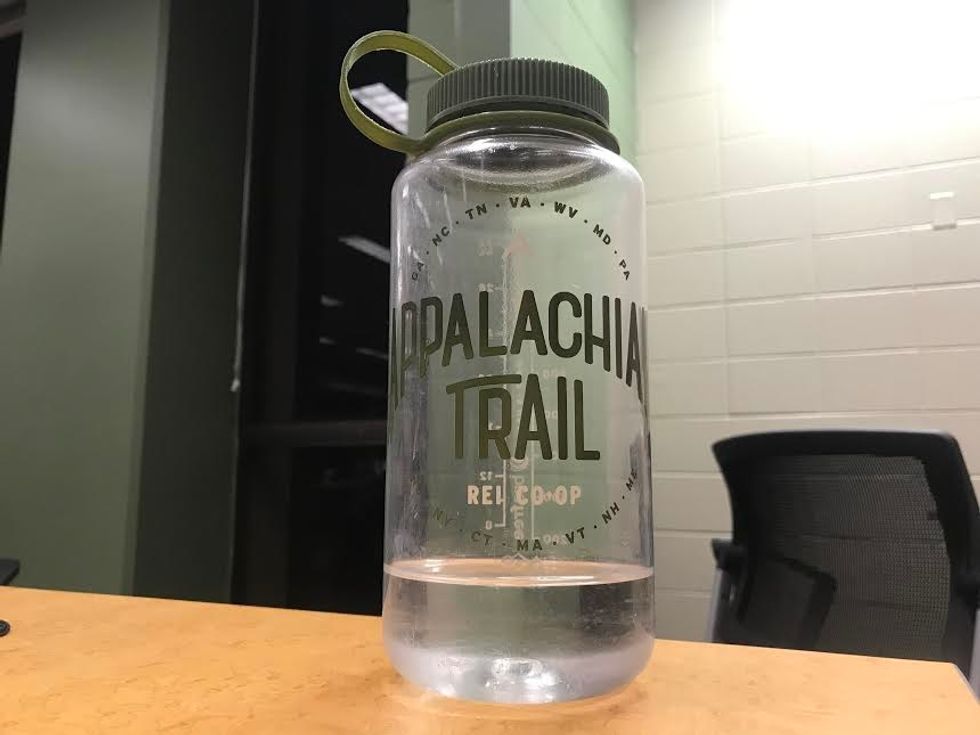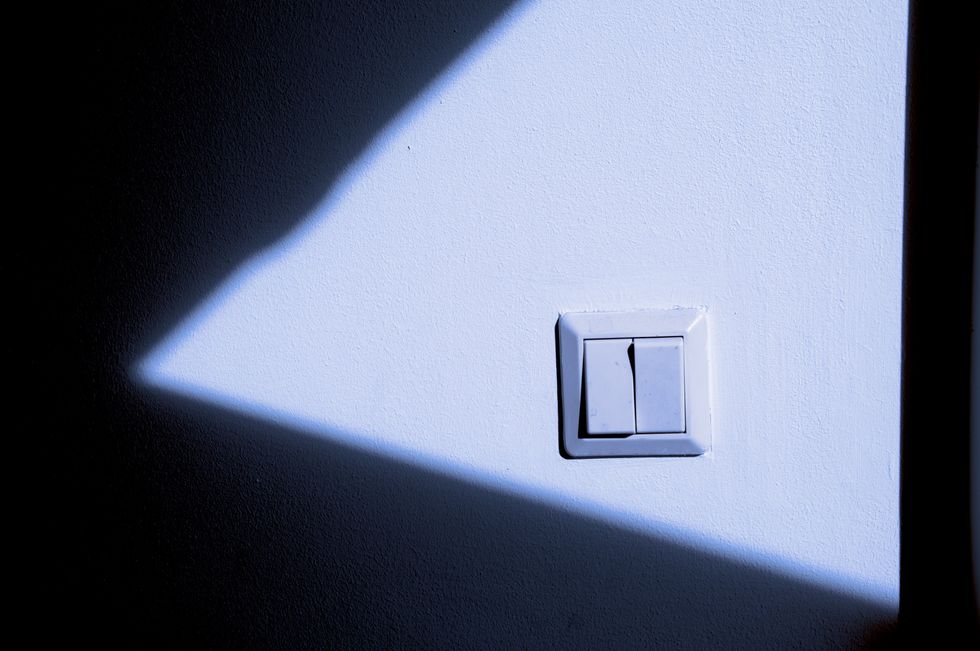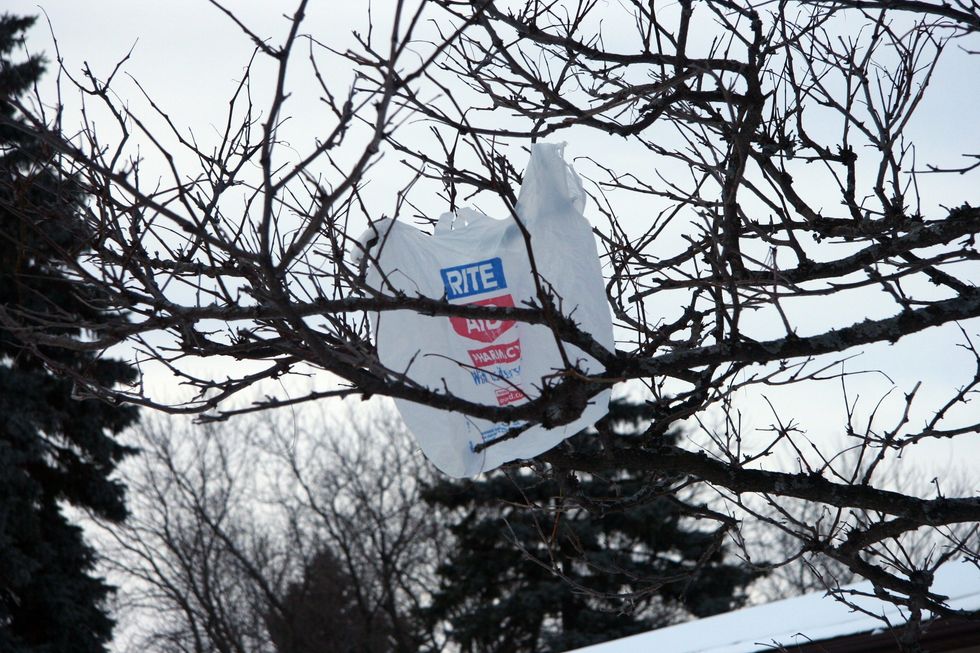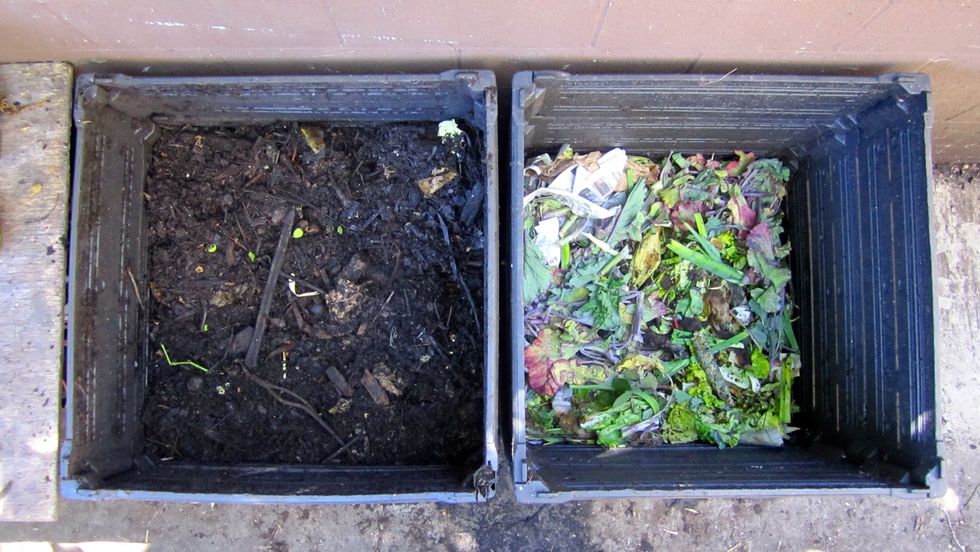.
1. Get a reusable water bottle.

Photo from Larry Meisner
Though one of the most obvious ways to cut down on unnecessary plastic consumption, it's still absolutely worth mentioning. It blows my mind to see how many plastic bottles have been spared each time I fill my Nalgene at water fountains across campus. It really makes you wonder just how much pollution would be circumvented if everyone had a reusable water bottle. The classic Nalgene is a fan favorite and it's certainly light years ahead of single-use plastics as far as sustainability goes, but if you really want to make an environmental statement, grab a Hydro Flask! Not only are you avoiding plastic altogether, but it's insulated, too; it is truly a win-win.
2. Buy from environmentally proactive companies.

Photo from Larry Meisner
With environmental concerns being more prominent now than ever before, it only makes sense that there's been a shift in the practice of some clothing brands to reflect the need for more sustainable apparel. Some of the more outdoor-oriented brands such as Patagonia and REI have been manufacturing clothing and gear with the environment in mind for decades, but more recently, even bigger brands like Adidas, the second largest activewear brand in the world, have placed emphasis on the importance of sustainability in all that they do. For example, each pair of Adidas Ultraboost trainers are made entirely out of recycled materials! Brands like these make you feel good about getting dressed every day.
3. Turn it off!

Photo from Niklas Morberg on Flickr
This is probably the simplest yet somehow lesser practiced methods of promoting energy sustainability. When you leave your room, house, whatever the case may be, turn your lights off! Even if you're just running a quick errand, shut the TV down and flick that light switch on your way out--energy conservation is one of the easiest ways to minimize your carbon footprint, something that's moved to the forefront of environmentalists' agendas as of late. It may seem insignificant, and on an individual scale it just might be; but, just imagine how much energy would be saved if everyone in the world took those 20 extra seconds to turn their electronics off on their way out the door. Every individual is part of the big picture.
4. Be plastic bag-conscious.

Photo from Kate Ter Haar on Flickr
There has actually been a great deal of research showing that use of what has long been thought of as more eco-friendly shopping bag alternatives, such as cotton totes, may or may not be better for the environment than the single-use plastic grocery bags-- some of them would have to be used more than a thousand of times before they were rendered better for the environment than the grocery bags found in stores today. With that being said, it's important to remain conscious of your use, and whether or not you actually need one; if you do need one, make sure to keep it for reuse when you're done carrying your groceries. Particularly at gas stations but in grocery stores too, clerks often end up bagging only a handful of small items. Next time you make a small purchase, politely tell the clerk no, you don't need a bag. If every time someone bought a couple of pieces of candy, or a toiletry, or a pack of drinks, they carried them out rather than having them bagged, there's no telling how much plastic pollution would be avoided.
5. Dry responsibly.

Photo from Larry Meisner
I'll illustrate for you a situation I see every single day in the bathrooms here at school. Some guy walks out of the stall and proceeds to wash his hands. Following the cleansing, he walks past the air dryer and heads over to the paper towel dispenser; not only does he circumvent the most eco-friendly option, but then adds insult to injury by grabbing four or five paper towels before even using a single one. He then bunches them up, dries his hands, and throws away a handful of lightly used paper towels, less than half of which are saturated. I'll admit, sometimes you're in a rush, and taking thirty seconds to get your hands halfway dry via air dryer seems suboptimal. If you're going to use paper towels, though, grab one at a time! One or two paper towels will do the job just fine. Forests all over the planet are being decimated by this type of reckless environmental irreverence, and it's too simple a fix to not do your small part.
6. Go on a hike, and take a trash bag with you!

What better way to celebrate Earth Day than by traversing some of it's most beautiful landscapes on foot? (Don't know where to go? Check out my article 6 Best Hiking Destinations in the Southeast) Unfortunately, most (if not all) of the trails you may hit this Earth Day see far too much ignorant, or perhaps simply disrespectful, foot traffic who leave their trash along the way. As much as we may want to, there's no way to track down the culprits and reprimand them for their negligence; however, there is certainly a way to offset their damage. Be the change you want to see in the world-- if you want a cleaner natural environment, make it happen!
7. Compost, compost, compost!

Photo from David Silver on Flickr
The beautiful thing about composting is that you're killing several birds with one stone, and doing so quite easily (don't know where to begin? Click here for the basics). For one, you're keeping tons of waste out of landfills where they'd release greenhouse gases, and actually putting them towards something good-- you're quite literally recycling the earth. Secondly, your compost pile will benefit the soil in which it's present (or that you put it in, if you don't have anywhere for an outdoor compost pile). In addition, many of the micronutrients in compost act as pesticides, thus decreasing the need for actual pesticides, most of which possess harmful chemicals. It doesn't hurt that it costs little to nothing, as opposed to some other more costly methods of "going green". No matter how you look at it, you really can't go wrong with composting.
8. Scale back on meats.

Photo from USDA NRCS Montana on Flickr
This is one I find myself struggling with quite frequently-- I do love me a good cheeseburger. With that being said, eating less meat has a positive effect on the environment in more ways than one. For starters, the obvious: less meat consumption means fewer animal deaths, which is likely a plus for anyone who has a heart. But, beyond that, if even half of the population were to really be conscious of their meat consumption, we wouldn't see some of the Earth's largest and most august forests, such as the Amazon, destroyed for the sake of raising cattle and the like. How are the world's forests supposed to compete with massive increases in cattle grazing and people who use five paper towels to dry their hands?
9. Thrift!

Photo from Mike Mozart on Flickr
This goes both ways--by donating your old clothes and buying those of others, you're reducing consumerism across the board. For everything you donate or purchase secondhand you're playing a small part in minimizing manufacturing pollution, gas consumption, and every other not-so-eco-friendly element of the process of getting raw materials into factories and then into the stores from which you buy clothes. Goodwill, yard sale, whatever it takes; old clothes are the way to go.
10. Donate your wands to wildlife.

Ladies, this one's for you. When you think of the word "recycle", what comes to mind? Throwing paper and plastic waste in the recycling bin? Collecting old plastic bags to use later? Maybe taking a bunch of water bottles to your local recycling plant? While all good things, none of them are quite as cool as what the Appalachian Wildlife Refuge is doing-- using recycled mascara wands to help clean wild animals! The way the wands are designed allows them to be quite effective at removing fly eggs and larva from the animals' fur and thus allowing them to live healthier, happier lives (Want to learn more about Wands for Wildlife? Click Here). If that doesn't make you want to recycle, I don't know what will.




 Energetic dance performance under the spotlight.
Energetic dance performance under the spotlight. Taylor Swift in a purple coat, captivating the crowd on stage.
Taylor Swift in a purple coat, captivating the crowd on stage. Taylor Swift shines on stage in a sparkling outfit and boots.
Taylor Swift shines on stage in a sparkling outfit and boots. Taylor Swift and Phoebe Bridgers sharing a joyful duet on stage.
Taylor Swift and Phoebe Bridgers sharing a joyful duet on stage.













